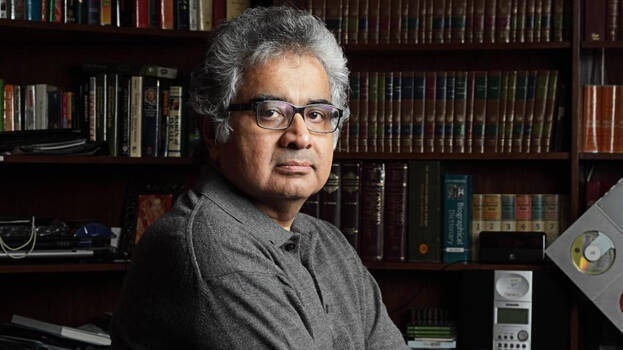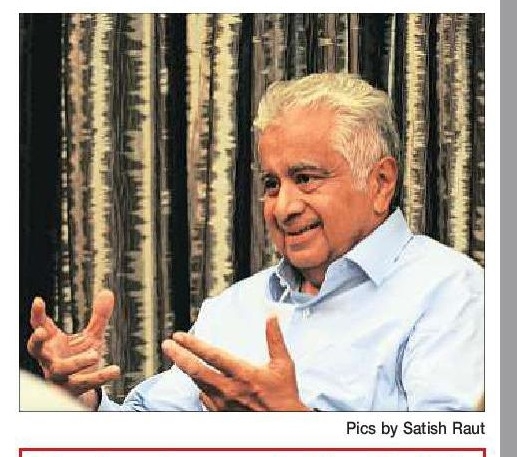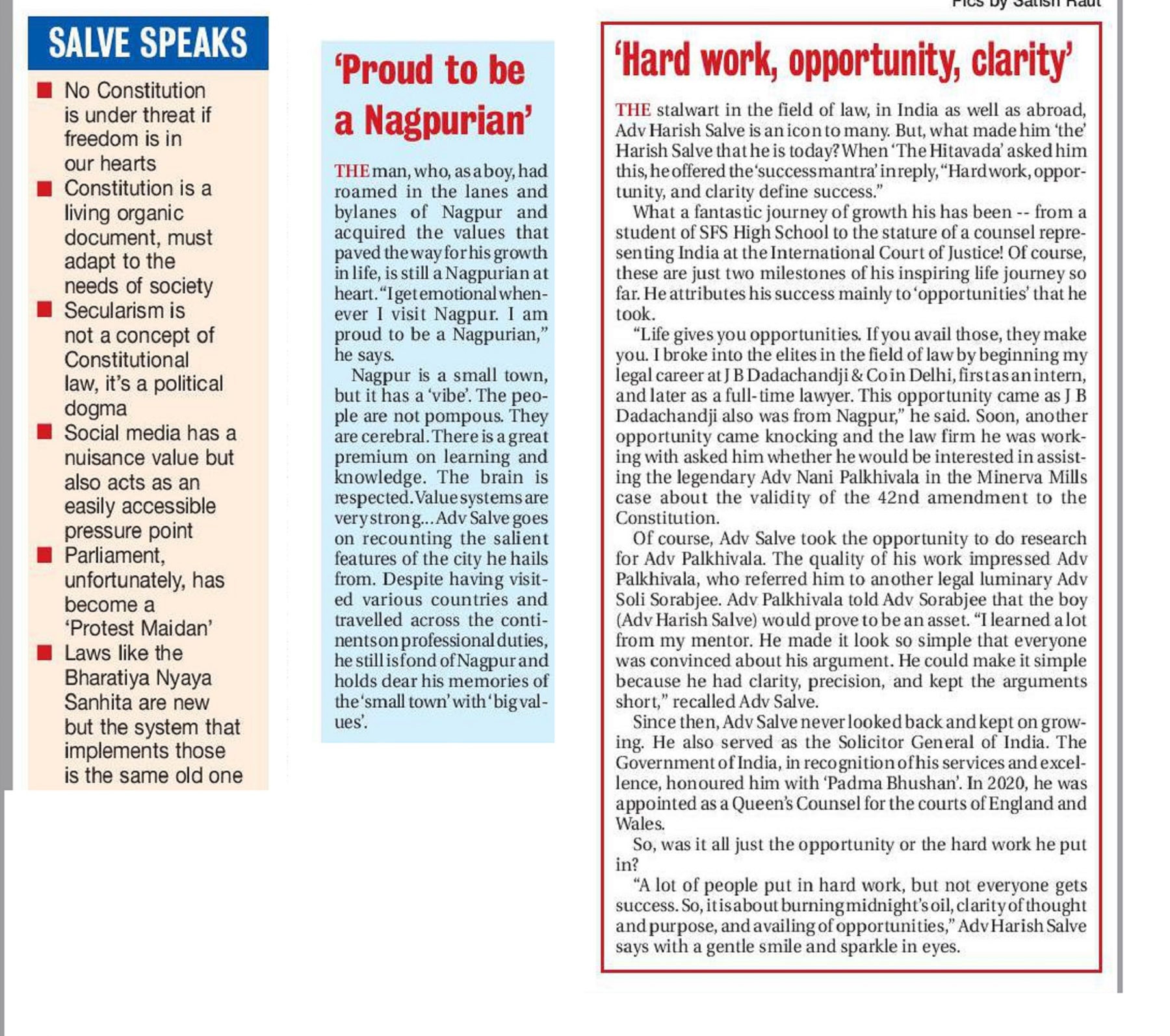‘India must have rule of law, not fear of law’
| Date :05-Jan-2025 |

Even as the world takes his as a final word on most issues of the Constitution and the law, ‘The Hitavada’ happened to hear words of wisdom from
‘Padma Bhushan’ Adv Harish Salve
during his whirlwind visit to Nagpur.
Editor Vijay Phanshikar, Associate Editor Rahul Dixit and Deputy Editor Kartik Lokhande engaged the iconic legal luminary in a relaxed conversation on issues of critical importance -- to the larger Indian society -- about the Constitution, the evolving Indian law and the changing socio-economic and political contexts.
WHAT senses see is the polish and poise as world-renowned jurist Harish Salve opens up to discuss complex issues of the Constitution and law and the judicial system. His sophistication peeps from every grain of his personality, underlined by his sense of restraint honed by a lifetime of usage of fine language -- before the courts and before the public. Even as he admonishes the system and the men who run it, Adv Harish Salve mixes his strong opinion with matching words.
“I do not mince words,” comes the admission from the eminent jurist, who hails from Nagpur. The truth in his statement immediately emerges as he responds to a question on the concept of jurisprudence and the Constitution. “Jurisprudence is increasingly under threat in India. It poses a threat to the rule of law. The endeavour of jurisprudence should be employed to instill in a common man’s heart the confidence that rule of law is a reality. One must get access to justice, clubbed with efforts to reduce pendency of cases,” he observes, in an exclusive interview to ‘The Hitavada’, during his visit to the city on Friday, at his presidential suite in a five-star hotel.
Speaking about the Constitution of India, he finds some ease rooted in his knowledge and experience, and also some unease reflected in a slight crease on his forehead.

“As long as there is freedom in our hearts, no Constitution is under threat. Shouting about the Constitution being in danger has political tones,” says Adv Harish Salve. Elaborating on the point, he uses (Contd from page 1)
two phrases to make a fine distinction between the concepts they represent -- ‘Rule of Law’ and ‘Fear of Law’. To make ‘rule of law’ a reality, fear of police, fear of law enforcement agencies must be removed. This can happen only when the common man gets access to justice in an expedited, yet reasoned, manner.
In a composed manner, and with a firm but soft voice, he emphasises, “We need to revisit the edifice of the constitutional structure to make rule of law an everyday assurance, an everyday experience. For, the Constitution is a living, organic document. It must adapt to the needs of the society.” This assertion brings a fresh warmth in the conversation. Hands folded on chest -- as if in supplication -- open out, and a freer flow begins to enliven the discourse.

The former Solicitor General of India starts driving deeper into some important points about the Constitution.
As if his inner self has hit the gavel of his passion on to the table of formal expression, Adv Salve questions the inclusion of the word ‘Socialist’ in the Preamble and the principle of ‘Secularism’ attached to the Constitution. He wonders, rather indignantly, “Why should India be a Socialist country?” -- and follows up with a very straight-forward answer: “Each generation has the right to choose which economic direction it wishes to follow.” Why should there be monopolisation of ideas through expressions like ‘Socialist’ and ‘Secularism’, he asks, in effect. Again, he replies quickly, “Secularism is not a concept of Constitutional law.” All these are ‘political dogmas’.
Occasionally, Adv Salve makes use of a language similar to that of politicians. But when he speaks, the assertions are sans any political tone. What emerges is intellectual in nature, but tinged with emotion of a devout constitutionalist. Obviously, he abhors political exploitation of the structure and spirit of the Constitution.
Each of his words has the power to convince open minds, his righteousness coming through in plain, straight words.
Speaking of politics, often a flashpoint emerges between the judiciary and the legislature. In this context, Adv Harish Salve had famously said once that the Supreme Court was ‘not the moral guardian of the country’. He still stands by his statement, and offers reasoning, “The law must evolve with time and develop. The task of the courts is to ensure that this process is smooth. Who are we to take away the right of the elected representatives to legislate? They represent the aspirations of people, according to which the law must evolve and develop.”
In the era of social media, the evolution of law has assumed newer dimensions. In fact, many predict the ‘end of lawyers’ with the advent of social media and Artificial Intelligence (AI). Does it concern him?
The legal eagle gives a charming smile and says that social media has a nuisance value and also acts as an easily accessible pressure point. He demystifies the issue saying, “Basically, it bridges a huge asymmetry that exists in the society today. As nothing can resolve any problem by itself, the society will always need good judges and good lawyers.
As far as AI is concerned, it is a glorified search engine. It has the assistive power to add ease to operations but the originality of the human brain is irreplaceable.”
The man who represented India at the International Court of Justice in the famous Kulbhushan Jadhav case and charged only Re 1/- as his fees, feels that all dogmas must be challenged. Then bringing to fore his astonishing ability to make fine distinctions, he says, “We must challenge the gods of today as they also have got feet of clay. We must realise that people in high offices govern us and not rule us. This realisation will make us aware that we, as a nation, grow through battle of ideologies.” Unfortunately, he rues, Parliament has become a ‘Protest Maidan’ where people protest instead of deliberate upon the issues with a well-studied approach.
So, is this the ‘Grammar of Anarchy’ that ‘Bharat Ratna’ Dr Babasaheb Ambedkar had referred to in his famous speech before the Constituent Assembly 75 years ago?
Calling himself as a great fan of Dr Ambedkar, Adv Harish Salve interprets ‘Grammar of Anarchy’ as an effort to challenge the existing social order from time to time. But, he makes it clear, Dr Ambedkar did not envision this challenge to be violent. The visionary leader expected it to be the process of a positive ‘constant churning’.
This cannot be achieved through waving a book with ‘red cover’ and provocative protests, he quips.
The legal luminary, who is among the most celebrated Constitution experts, is best qualified to make a fine comment reflecting his scholarship. During the flow of conversation, sometimes, the joy in his eyes adds a different glow to his traditionally handsome face under the crown of white hair. This attribute of personality wins him the argument when he makes a fine distinction between the ‘structure’ and the ‘spirit’ of the Constitution. “The ‘basic structure’ of the Constitution is needed as much as its spirit. There are several aspects of life today that the spirit of the Constitution may not encompass. Unless there is ‘basic structure’, those interpreting the Constitution in the modern context may not be able to get things right,” he argues. The basic structure of the Constitution is the ‘irreducible minimum’, he adds (in the process leaving some questions untackled).
This prompts one to ask if the Government of India has addressed the modern legal needs by way of enacting three new criminal laws -- the Bharatiya Nyaya Sanhita, the Bharatiya Sakshya Adhiniyam, and the Bharatiya Nagarik Suraksha Sanhita?
His answer connects to the discussion on the rule of law. “Laws may be new, but the system that implements the laws is the same. The ‘rule of law’ is under threat in lower courts. And, the States do not invest much in lower courts.
Unless appropriate change is effected there, common man’s access to justice will not improve and the rule of law will not be assured,” he says. At the same time, he adds that the people have faith in the judges but not the system.
So, should there be a change in law education in the country to change the system?
“No need,” stresses Adv Salve. He reasons that modernisation or standardisation of law education may serve some good. For long-term positive impact, the number of judges per 1,000 persons must increase, and the judges must get good salaries, he underlines.
Of course, just as law evolves like a flowing river, time also flies by. Since it was time for Adv Harish Salve to fly out of Nagpur, the conversation, facilitated by senior lawyer and former District Government Pleader Adv Prashant Sathianathan, also had to be punctuated with a good bye, in the hope of re-igniting it in future.
Such rare conversations leave in their wake a desire to keep going -- for two reasons: The lure of the personality, and the love for a meaningful discourse.


